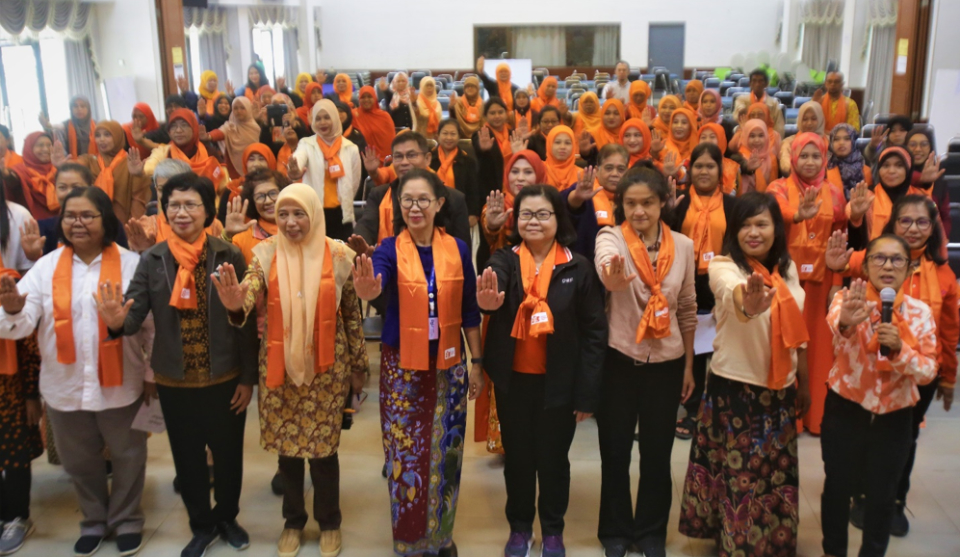Ending Violence Against Women and Girls (EVAWG)

Violence against women and girls is a pervasive human right violation that affects one out of three women worldwide[1]. VAWG impedes human development and has serious negative consequences, ranging from multiple immediate to long-term physical, sexual and psychological impacts, which often prevent women and girls from fully participating in society. In addition, it carries tremendous economic costs for women, their families, for businesses, national budgets, the economy and society at large.
Thailand has put in place coordination mechanisms to provide services and assistance for women subject to violence including migrant women; however, challenges remain in accessibility to services, complaint and justice process for cases such as domestic violence, harassment in work force or in working environment. In Thailand, for example, over 30,000 cases of violence against women are reported to the Ministry of Public Health’s One Stop Crisis Center (OSCC). Yet only around 5,000 cases are recorded by the police, and only around 1,500 cases result in an arrest[2].
UN Women in Thailand works with a wide range of stakeholders including the Ministry of Social Development and Human Security, the Office of the Attorney General, ASEAN Commission on the Promotion and Protection of the Rights of Women and Children and civil society organizations to develop and enhance policy framework and legislations to eliminate violence against women and girls. UN Women works in collaboration with the Ministry of Social Development and Human Security on the following three arches:
- Strengthen data system to better understand the magnitude of GBV by developing real time monitoring to be used for designing evidence-based and coordinated response and services across different line ministries and civil society organizations.
- Ensure services are accessible to survivors and at-risk group which include quality assessment of existing services on GBV provided by different line ministries which could lead to strengthening protocols for case management on GBV, quality counseling and psychosocial support, care and treatment, juristic support, and procedures for referral of cases as well as local essential services at local administration level.
- Identify areas for capacity development to provide multidisciplinary support for GBV services across agencies
Under the EU Spotlight Initiative project entitled “Safe & Fair: Realizing women migrant workers’ rights and opportunities in the ASEAN region” (2018-2022), UN Women delivers technical assistance and support to make labour migration safe and fair for all women in Thailand and the ASEAN region, improves national capacities on policy implementation for coordinated multi-sectoral services to ensure that women migrant workers are less vulnerable to violence and trafficking and benefit from responsive quality services.
UN Women co-chairs the Gender-based Violence Sub-group on COVID-19 with UNFPA under the UN Country Team (UNCT) with the aims to address immediate needs, actions and services to prevent and respond to GBV during COVID-19 as well as longer-term development of services, systems, and structures to protect the affected women and girls, men and boys from all forms of violence, with active engagement and involvement of key government and civil society stakeholders. A series of meetings between government agencies and members of the GBV sub-group have been organized to discuss on measures to better understand on the magnitude of the violence, prevent all forms of violence, and improve available services for survivors.
[1] World Health Organization, Global and Regional Estimates of Violence against Women: Prevalence and Health Effects of Intimate Partner Violence and Non-partner Sexual violence (2013).
[2] Skinnider, E., Montgomery, r., & Garrett, S. (2017). The Trial of Rape. Bangkok, Thailand: UN Women, UNDP, UNODC.